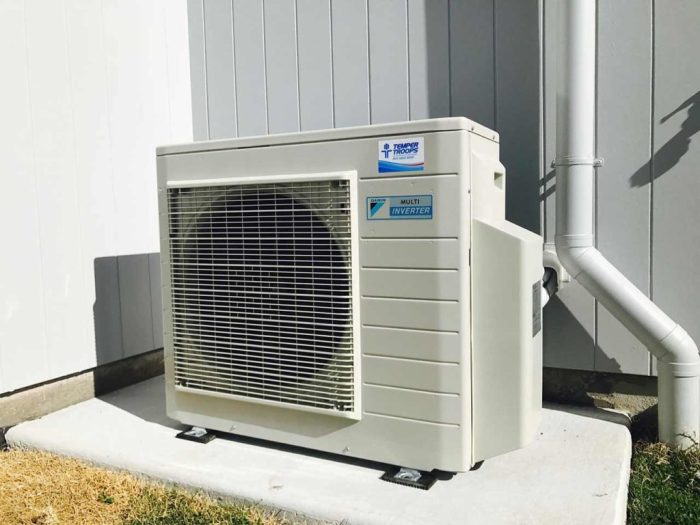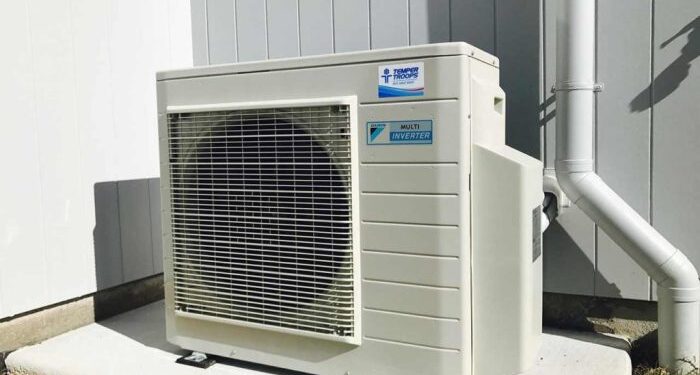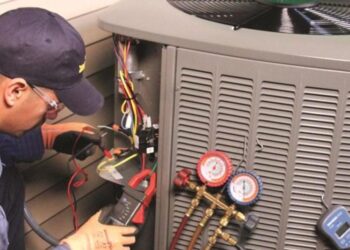Delving into the realm of Top 5 Reasons to Replace an Old Air Conditioner in 2025, this piece sets the stage for a journey filled with insights and revelations, beckoning readers to explore the world of air conditioning upgrades with fresh eyes and renewed curiosity.
The subsequent paragraphs will provide a detailed exploration of the topic, shedding light on the key aspects that warrant consideration in the year 2025.
Factors to Consider Before Replacing an Old Air Conditioner

When contemplating replacing an old air conditioner, there are several key factors to consider to make an informed decision regarding the upgrade.
Age and Efficiency Rating of the Current Unit
One of the primary factors to consider is the age of the current air conditioner unit and its efficiency rating. Older units tend to be less energy-efficient and may struggle to cool your space effectively. Newer models are designed to be more energy-efficient, which can lead to cost savings on your utility bills in the long run.
Repair History and Frequency of Breakdowns
Another crucial aspect to evaluate is the repair history of your old air conditioner and the frequency of breakdowns. If you find yourself constantly needing to repair the unit or if it frequently breaks down, it may be more cost-effective to invest in a new system rather than continuing to patch up the old one.
Changes in Utility Bills Related to the Old Unit
Take note of any significant changes in your utility bills that may be related to the performance of your old air conditioner. If you notice a steady increase in energy costs despite regular maintenance, it could be a sign that your current unit is no longer operating efficiently and may need to be replaced.
Energy Efficiency Benefits of Upgrading to a New Air Conditioner
When considering the decision to replace an old air conditioner, one of the key factors to take into account is the energy efficiency benefits that come with upgrading to a new unit. Since 2020, there have been significant advancements in technology that have made newer air conditioners much more energy-efficient than their older counterparts.
These advancements not only help reduce electricity consumption but also have a positive impact on the environment.
Advancements in Energy-Efficient Technology
New air conditioners are equipped with features such as variable-speed compressors, improved insulation, and smart thermostats that help optimize energy usage. These technologies allow the unit to adjust its operation based on the cooling needs of the space, resulting in lower energy consumption and reduced utility bills.
Reduction in Electricity Consumption
By upgrading to a new air conditioner, homeowners can experience a significant decrease in their electricity consumption. For example, a high-efficiency air conditioner can consume up to 50% less energy than older models, leading to substantial cost savings over time.
Additionally, newer units often come with energy-saving modes and programmable settings that allow users to customize their cooling preferences while still minimizing energy usage.
Environmental Impact
Using an old air conditioner can have a negative environmental impact due to its higher energy consumption and carbon footprint. In contrast, newer, energy-efficient models help reduce greenhouse gas emissions and contribute to overall energy conservation efforts. By replacing an old air conditioner with a more efficient unit, homeowners can play a part in reducing their carbon footprint and promoting sustainability.
Cost Savings Associated with Replacing an Old Air Conditioner

Replacing an old air conditioner can lead to significant cost savings in the long run. Let's explore how upgrading to a new unit can benefit your finances.
Comparison of Operating Costs
When comparing the cost of operating an old AC unit versus a new energy-efficient model, the difference can be quite substantial. Older units tend to be less energy-efficient, leading to higher electricity bills. Newer models are designed to be more energy-efficient, resulting in lower monthly operating costs.
Potential Savings on Repair and Maintenance
Old air conditioners often require frequent repairs and maintenance to keep them running smoothly. These costs can add up over time, making it more economical to invest in a new unit. By replacing your old AC with a new one, you can avoid the hassle and expenses associated with constant repairs and maintenance.
Rebates and Tax Credits for Energy-Efficient Models
One of the benefits of upgrading to a new air conditioner is the potential to qualify for rebates or tax credits. Many energy-efficient models are eligible for incentives offered by government agencies or utility companies. By taking advantage of these programs, you can offset some of the upfront costs of purchasing a new unit and enjoy long-term savings on your energy bills.
Health and Comfort Enhancements from Installing a New Air Conditioner
Improved air quality plays a crucial role in enhancing indoor comfort and promoting better health. Upgrading to a new air conditioner can provide a range of benefits that contribute to a healthier and more comfortable living environment.
Benefits of Better Humidity Control and Air Filtration
- Modern air conditioners come equipped with advanced features that allow for better humidity control, ensuring that the indoor air is not too dry or too humid. This helps prevent issues like mold growth and respiratory problems.
- Newer units also incorporate improved air filtration systems that can effectively remove dust, allergens, and other airborne particles from the air. This results in cleaner and healthier indoor air quality.
Consistent Cooling and Temperature Regulation
- One of the key advantages of installing a new air conditioner is the ability to maintain consistent cooling throughout your home. This helps create a more comfortable living environment, especially during hot summer months.
- Modern units are designed to regulate temperature more efficiently, ensuring that your home stays cool and comfortable without experiencing temperature fluctuations. This can lead to better sleep quality and overall well-being.
Technological Advancements in Modern Air Conditioning Systems
In recent years, technological advancements have transformed the landscape of air conditioning systems, offering a range of smart features that enhance efficiency, comfort, and convenience for homeowners.
Smart Features in Newer AC Units
- Many modern air conditioning systems come equipped with smart features such as Wi-Fi connectivity, allowing users to control the temperature settings remotely through their smartphones or other devices.
- Some units also have sensors that can detect changes in room temperature and adjust the settings automatically to maintain a comfortable environment.
- Smart thermostats can learn the household's cooling preferences over time and create customized schedules to optimize energy usage.
Integration of IoT and Home Automation
- IoT (Internet of Things) technology has enabled seamless integration of air conditioning systems with other smart home devices, such as voice assistants, home security systems, and lighting controls.
- This integration allows for a more interconnected and automated home environment, where the air conditioner can work in tandem with other devices to enhance overall energy efficiency and comfort.
- Home automation systems can also provide valuable insights into energy usage patterns, helping users make informed decisions to further optimize their cooling systems.
Programmable Thermostats for Convenience and Energy Savings
- Programmable thermostats offer advanced scheduling options that allow users to set different temperatures for various times of the day, reducing energy consumption when cooling is not required.
- By programming the thermostat to adjust settings based on occupancy patterns or sleep schedules, homeowners can achieve significant cost savings while maintaining comfort levels.
- Some thermostats can also provide energy usage reports and suggest ways to improve efficiency, empowering users to make conscious choices about their cooling habits.
Ending Remarks
As we draw the curtain on our discussion, the essence of the Top 5 Reasons to Replace an Old Air Conditioner in 2025 shines through, encapsulating the importance of staying abreast of advancements in air conditioning technology for a more efficient and comfortable living environment.
Query Resolution
What are the key factors to consider before replacing an old air conditioner?
Factors include the age and efficiency rating of the current unit, repair history, frequency of breakdowns, and changes in utility bills.
How can upgrading to a new air conditioner lead to energy efficiency benefits?
Upgrading can leverage advancements in energy-efficient technology, reduce electricity consumption, and positively impact the environment.
Are there cost savings associated with replacing an old air conditioner?
Operating a new AC unit can be cost-effective, offer savings on repairs and maintenance, and potentially qualify for rebates or tax credits.
What health and comfort enhancements come with installing a new air conditioner?
New units provide improved air quality, better humidity control, air filtration, and consistent cooling for enhanced comfort and health benefits.
What technological advancements can be found in modern air conditioning systems?
Modern AC units come with smart features, integration with IoT and home automation, and programmable thermostats for convenience and energy savings.










![How To Avoid Contractor Scams [Infographic]](https://ac.radartasik.id/wp-content/uploads/2025/10/how-to-avoid-contractor-scams-feat-120x86.png)

